Chinese New Year
Weibo Watch: Stealing the Show
About the biggest controversy surrounding the 2024 Spring Festival Gala, ‘Chunshan Studies’, Jia Ling’s peak in popularity, and other must-know Weibo topics.
Published
11 months agoon

PREMIUM NEWSLETTER | ISSUE #24
This week’s newsletter:
◼︎ 1. Editor’s Note – Stealing the show
◼︎ 2. What’s Been Trending – A closer look at the featured stories
◼︎ 3. What More to Know – Five bit-sized trends
◼︎ 4. What’s the Drama – Top TV to watch
◼︎ 5. What Lies Behind – Celebrations and frustrations
◼︎ 6. What’s Noteworthy – Fu Yuanhui’s plea for help
◼︎ 7. What’s Popular – Multi-talented Jia Ling’s peak in popularity
◼︎ 8. What’s Memorable – The micro-film of the Spring Festival
◼︎ 9. Weibo Word of the Week – “Chunshan Studies”
Dear Reader,
It has been several years since I officially paused my PhD studies to dedicate my full attention to What’s on Weibo. My research focus during my studies was centered on the representation of the Second Sino-Japanese War in Chinese and Japanese popular culture, a topic I still find fascinating and relevant. However, one problem I encountered while doing my PhD was the constant allure of equally fascinating trends or topics to explore. The Spring Festival Gala is one such topic that always ranked high on my ‘PhD research wishlist.’
I’m sure you’re all familiar with the Gala by now, but just to recap: the CMG Spring Festival Gala, formerly known as the CCTV Spring Festival Gala, is the state media’s annual live television event broadcasted on the evening of Chinese New Year since 1983. It’s one of the most-watched variety shows globally, attracting an average of 700 million viewers. Over 679 million people tuned in to the live broadcast this year (by comparison, the latest Super Bowl had a viewership of 123 million). The Gala features various acts, including singing, dancing, and comedy, spanning approximately 4 hours.
The Gala holds immense significance for all involved parties, from production teams to performers and sponsors. It’s a convergence of culture and commerce, where the Party meets pop culture. CMG (China Media Group), under the direct control of the Central Propaganda Department of the Communist Party, utilizes the show to communicate official ideology, promote traditional culture, and showcase top national performers. Despite its commercial aspect, the Gala always remains highly political, blending official propaganda with entertainment. Over the years, it has also become a platform to showcase China’s innovative digital technologies.
Given its importance, it’s not surprising that every second of the show is closely examined, analyzed, scrutinized by an audience of millions. This also results in a new controversy surrounding the show virtually every year, whether it’s about a performance that is deemed racist or about jokes that are believed to be sexist, about who appeared and who did not come up, about magic tricks going wrong or an audience member caught on camera while picking their nose.
The controversy you need to know about this year concerns Chinese actor Bai Jingting (白敬亭). Together with Wei Chen (魏晨) and Wei Daxun (魏大勋), he performed the song “Going Up Spring Mountain” (上春山). Although the song itself initially wasn’t particularly noteworthy, the performance attracted major attention due to the positioning of the three singers on a tiered platform, representing a mountain, with Bai standing on the highest pedestal. After Bai sang his part of the song, it seemed like he was supposed to step down but he didn’t, so Wei Daxun sang from a lower step afterward. It was rumored that Bai Jingting may have intentionally vied for a more prominent position to attract more attention on stage, resulting in choreographic asymmetry and some apparent confusion among the performers.

Adding fuel to these rumors is the fact that Bai was the only performer wearing all black, while the other two wore white. After rehearsal videos of the performance were posted online, netizens noticed that in one video Bai initially stepped down after singing his part, and that he also wore white in another. This led to claims that Bai purposely changed his outfit last-minute to black, so that he could ‘steal the show’ while occupying the center position. It would also make it impossible for producers to switch to a rehearsed version of the song. (Although it’s a live show, every year’s Gala has a taped version of the full dress rehearsal that runs together with the live broadcast, so that in the event of a problem or disruption, the producers can seamlessly switch to the taped version without TV audiences noticing anything. A change in position or attire would make this impossible.)
While these are all mere rumors, they triggered widespread criticism of Bai, trending throughout the week. People accused him of having a bad character and wanting to steal the limelight, it even sparked the new term ‘Chunshan Studies’ (see our Weibo Word of the Week) and the video of “Going Up Spring Mountain” (上春山) became the Gala most replayed performance. The title ““Going Up Spring Mountain” took on an entirely different meaning and was even trademarked by a company in Shenzhen. It sparked memes, jokes, and led to people mimicking the song or editing images of the performance.
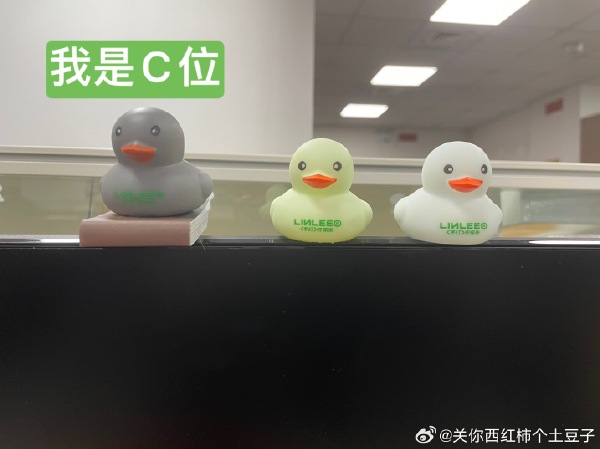
CCTV made it clear in a popular Weibo hashtag that “Every move in the Spring Festival Gala is carefully designed and precisely presented” (#春晚每一个走位都精心设计并被准确呈现#), suggesting Bai followed directorial instructions and never sought the limelight. It’s quite ironic that while the Gala usually wants to pretend that there is still some spontaneity involved, it now had to stress how there actually is none whatsoever to protect Bai’s reputation.
Also ironic is that while the entire discussion revolved around whether or not Bai was stealing the show, the song “Going Up Spring Mountain” actually did steal the spotlight and became the most-discussed act of the night. This year’s controversy adds to the Gala’s long list of noteworthy moments, each shedding light on the changing dynamics of China’s evolving media landscape, propaganda efforts, nationalism, gender issues, fan culture, and more. Perhaps it’s time for someone to undertake a PhD on that…
Miranda Barnes and Ruixin Zhang contributed to this Weibo Watch newsletter.
Best,
Manya (@manyapan)
PS Is there a China Studies topic that’s on your ‘wishlist’ too? Or have you come across any new trends or online phenomena that piqued your interest? I’m always eager to learn more about what fascinates you. Don’t hesitate to shoot me a message!
What’s Been Trending

1: The CMG Gala | The CMG Spring Festival Gala is not just an essential part of Chinese Lunar New Year celebrations, it is also the biggest televised media spectacle of the year. Over the entire last week, this four-hour extravaganza featuring forty-six performances has dominated social media conversations. In this article, we reflect on the highs and lows of this year’s edition of the world’s most-watched television program. Read all about it here 👇🏼
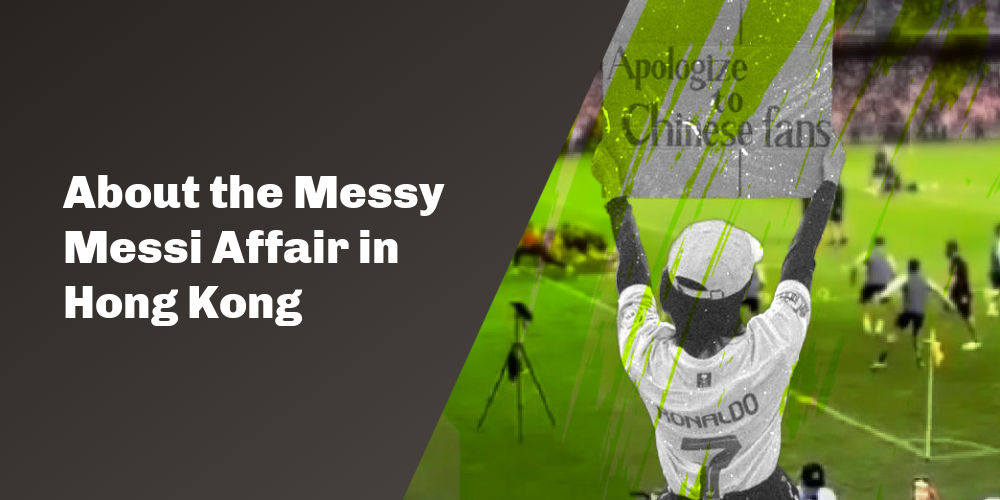
2: What a Mess | In the summer of 2023, it seemed like Messi’s popularity in China had reached its peak during a friendly match between Argentina and Australia held at Beijing’s Workers’ Stadium when a Chinese fan stormed onto the pitch and embraced Messi. The incident went viral and only garnered more appreciation for the soccer superstar, who extended his arms and reciprocated the hug. Fast forward eight months, and Messi’s reputation in China has plummeted to its lowest point. His highly anticipated appearance in a match in Hong Kong failed to materialize, leaving fans and organizers disappointed. Many suspect political motivations behind his absence, leading to widespread disillusionment among Chinese fans. (Updated with Messi’s response on 2/19).
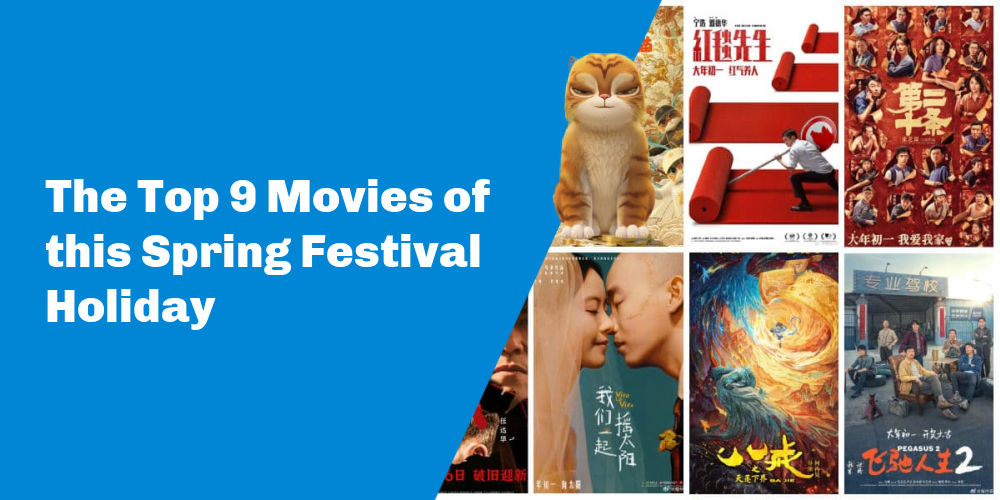
3: Box Office Peak Season | During the Chinese Spring Festival, along with the National Day Holiday, movies tend to earn around 32.3% more on average. Sci-fi and action films are usually the most successful, followed by comedies. Last year, the Spring Festival box office revenues accounted for about 12.3 percent of the yearly total. This year, it was actually all about comedy and animation. Jia Ling’s latest movie was the most anticipated one. Check the big nine Spring Festival movies in our article below.
What More to Know
◼︎ 🚙 Long Way Home | Sold-out tickets, overcrowded trains, traffic jams, and aggravated travelers – the Chinese New Year travel season has been a hot topic on Chinese social media recently, sparking various discussions. Over the weekend of February 17-18, terms such as ‘way home’ (返程) and ‘traffic jam’ (堵车) dominated Weibo as the eight-day Spring Festival holiday ended, with millions returning home after leisure travel and family visits. The situation was particularly severe in Hainan, where some endured waits of up to fourteen hours for a ferry, despite local authorities predicting a seven-hour clearance for traffic jams. China Daily reported that the provincial government increased the number of flights and ferries in hopes of avoiding mass congestion, but to no avail. As people nationwide faced difficulties returning home by train, boat, or car, more voices on social media called for amendments to the annual leave and public holiday system, advocating for a more staggered return to work to alleviate nationwide travel congestion (related Weibo hashtag: #海南离岛严重拥堵有人排14小时上船#, 130 million views).
◼︎ 👫 Holding Hand Gate Continued | Remember the 2023 so-called ‘Holding Hand Gate’? Chinese social media exploded after a local SOE official was snapped by a street photographer while taking a stroll with his mistress, a co-worker who had joined him on a Chengdu business trip. The viral video showed the woman elegantly dressed in a fitted pink ensemble, adorned with a $5000 Dior purse, walking hand in hand with the official, who sported a coordinated t-shirt and carried shopping bags. The man, PetroChina executive Hu Jiyong, was fired after his extramarital affair was exposed online. The woman, PetroChina employee Ms. Dong, was also dismissed. Now, the affair has again gone trending after Ms. Dong talked about the aftermath in a February 18 Douyin livestream, calling the commotion surrounding the exposed affair a particularly dark moment in her life, which she got through thanks to the help of her loved ones. However, the livestream was cut off halfway and the account was suspended for “violating the platform’s relevant regulations” (related Weibo hashtag #太古里牵手门女当事人直播间被封#, 270 million views).
◼︎ 🤖 OpenAI’s Sora | Since the American AI research company OpenAI introduced its new video generation model ‘Sora’ on February 16, it has become a big topic of discussion in Chinese media and on Weibo. Though not officially launched yet, demo videos released by Sora show what the new text-to-video model is capable of, allowing users to create very realistic, high-quality and detailed videos. In a recent column, Chinese political commenter Hu Xijin called Sora a “groundbreaking development” while also expressing worries over how these new technologies will impact the future of realistic film and the film industry at large. At the same time, Hu also wondered what the rapid progress of American AI companies means for China and its AI ambitions, calling the introduction of Sora a “warning” that China may be lagging behind when it comes to AI. If you’re interested to read more on this, I recently wrote an op-ed for The Guardian about the US-China race for AI supremacy: link. (Related Weibo hashtag #OpenAI首个视频生成模型Sora有多强大#, 28 million views).
◼︎ 🇷🇺 Navalny’s Death | The death of Russian opposition leader Alexei Navalny shocked the world this week. The 47-year-old anti-corruption activist died in a maximum-security prison in Russia’s far north. A day before his death was announced, Navalny appeared in a court hearing, where he cracked jokes about needing money from the judge. In the years leading up to his death, Navalny endured chemical burns and survived poisoning attempts. In a video message, Navalny’s wife, Yulia Navalnaya, held Putin accountable for her husband’s death. Chinese state media outlets reported Navalny’s death on Weibo, citing Russian statements that he suddenly fell ill after a walk in the prison on Friday, leading to shock and eventual passing. On Weibo, some commenters cynically dubbed his death as “Russia-style modernization,” while others criticized it as “Putin’s way,” labeling Putin as a ‘Czar’ or ‘Emperor.’ There were also remarks suggesting that Navalny’s demise was the foreseeable consequence of Russia’s intolerance toward opposition, and wrote that Navalny himself had opted to return to Russia after being treated in Germany in 2021 (related Weibo hashtag #俄反对派人士纳瓦利内狱中死亡#, 27 million views).
◼︎ 🦒 Giraffes on Weibo| Since I missed one newsletter edition (following the late little rabbit news), I haven’t had the chance to cover the giraffe incident on Weibo yet. Here’s a brief overview: In early February, around the 3rd, Weibo users flooded the US embassy’s account page with complaints about their economic struggles and plummeting stock market worries. The post they were responding to wasn’t related to China’s economy at all; it was about tracking giraffes in Namibia using GPS technology. This seemingly innocent post became a platform for discussing China’s post-pandemic economic issues and also included direct criticism of Chinese leadership. It’s not uncommon for Chinese netizens to use seemingly unrelated hashtags or posts to discuss sensitive topics, hoping to evade censorship. However, the giraffe thread was eventually censored anyway. Despite this, the post still garnered over 20,000 shares and nearly a million likes. Who would’ve thought wildlife conservation could be so popular? 🤡
What’s the Drama
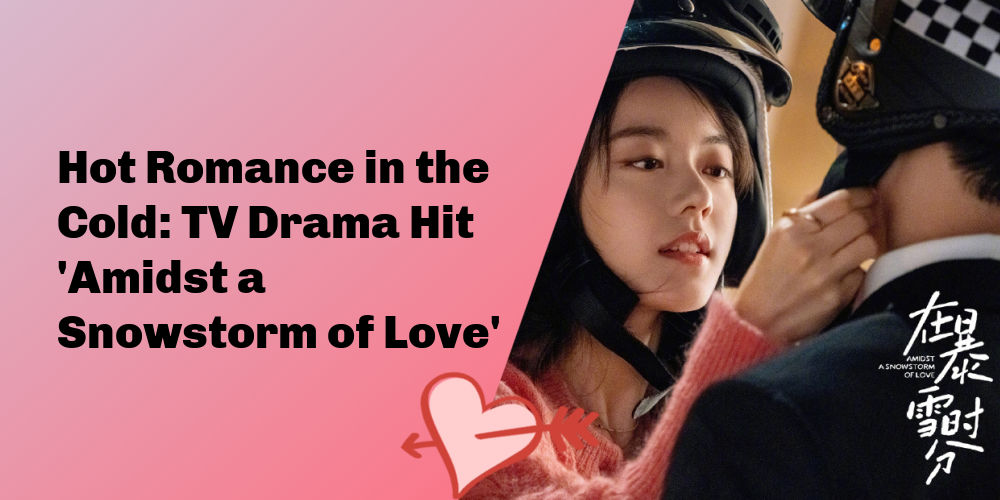
The TV drama “Amidst a Snowstorm of Love” (在暴雪时分) currently ranks number one on Weibo and Baidu’s Top TV drama rankings. The romantic drama tells the love story of snooker player Lin Yiyang (林亦扬, played by Wu Lei 吴磊) and nine-ball player Yin Guo (殷果, played by Zhao Jinmai 赵今麦). It is a genuine love story that showcases the chemistry between the two main stars, and the high ratings for the drama show that audiences were craving a straightforward drama that warms hearts on cold days. The drama premiered on February 2 and has since skyrocketed in popularity. The main hashtag on Weibo has received over 4 billion clicks, with 150 million views on February 19 alone.
▶️ This drama is an adaptation of the novel “Amidst a Snowstorm of Love” (在暴雪时分) by Chinese web novelist and screenwriter Mobao Feibao (墨宝非宝).
▶️ Singer Deng Dian (邓典D.D, b. 1999) performed the theme song for this drama, which has also become an online hit.
▶️ To realistically portray his characters, actor Wu Lei underwent snooker and billiards training before filming the drama. He also learned horse riding, archery, badminton, and tennis for other roles, leading some commentators to joke that he’s getting ready to compete in the “Olympics” of China’s entertainment industry.
You can watch Amidst a Snowstorm of Love with English subtitles via Viki here.
What Lies Behind
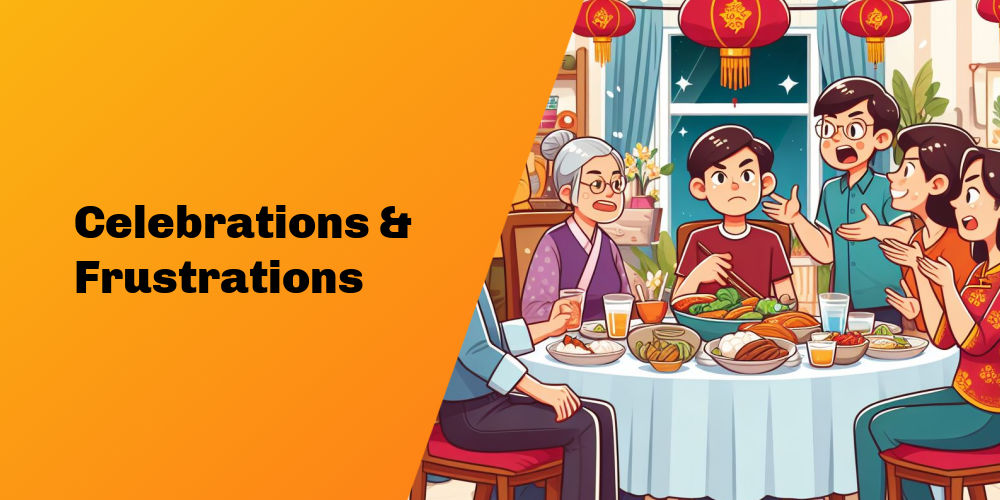
Only a few days into the Chinese New Year, China had already registered over 3.5 billion passenger trips. The Spring Festival travel rush is known as the world’s largest annual migration, predominantly journeys back to hometowns and family reunions. And so, over the past ten days or so, social media was flooded with videos showing family members’ emotional reactions when they are surprised by the homecoming of loved ones. Videos showed tears, laughter, hugs, and gentle scoldings for not giving advance notice of arrivals. Many viewers admitted to being moved to tears by these heartfelt moments while scrolling on their phones. But during the Spring Festival, we gradually saw a shift in people’s posts as they reported from their hometowns, where happy family reunions often turned into dinner dramas.
Returning home after prolonged separation from parents often evokes mixed feelings among Chinese younger people. While they look forward to family gatherings and homemade comfort food, they also worry that their family might find out that the idealized portrayal of their lives over the phone doesnt exactly match the reality. The joy of reunion fades with each passing day.
“It’s my fourth day home and I’ve been offering to do all the dishes to nurture our family bond,” some said, “but now, on day five, an argument has finally broke out.” While the immediate triggers for family disputes may vary, underlying reasons are often similar, as shared by Weibo users. Comments like “All you do is stay glued to your phone,” “You can’t even support yourself with your income; do you know how much money your cousin is making?” and “When are you getting married? You’re embarrassing us,” are commonplace. One commenter lamented, “I’m currently locked up in my room after a disagreement with my family. They all say home is a safe haven, but we all know that returning home during Chinese New Year means stepping into the eye of a storm.”
Amid these challenging times, psychologists offer online tips to foster better understanding of the generation gap and improve communication. Nevertheless, many express the difficulty of engaging in equal and respectful conversations with their parents and elders. As one blogger reflected, “It’s always the same emotional cycle during the Spring Festival: a honeymoon phase to start with, followed by numerous arguments, and sadness upon leaving home in the end.”
What’s Noteworthy

“We hired a car and now we’re being extorted. Halfway through, they wanted us to pay more to buy tickets; we disagreed, so now the driver won’t continue driving. What should I do? Should I call the police?” This was the urgent plea for help that Olympic swimmer Fu Yuanhui (傅园慧) posted on Weibo on Saturday morning, February 17th. Following her post, Fu Yuanhui and the scamming incident quickly went trending on Weibo, and her situation was soon resolved. This also led to criticism, as people argued she only got help so quickly because she is famous. Read more via link below.
What’s Popular
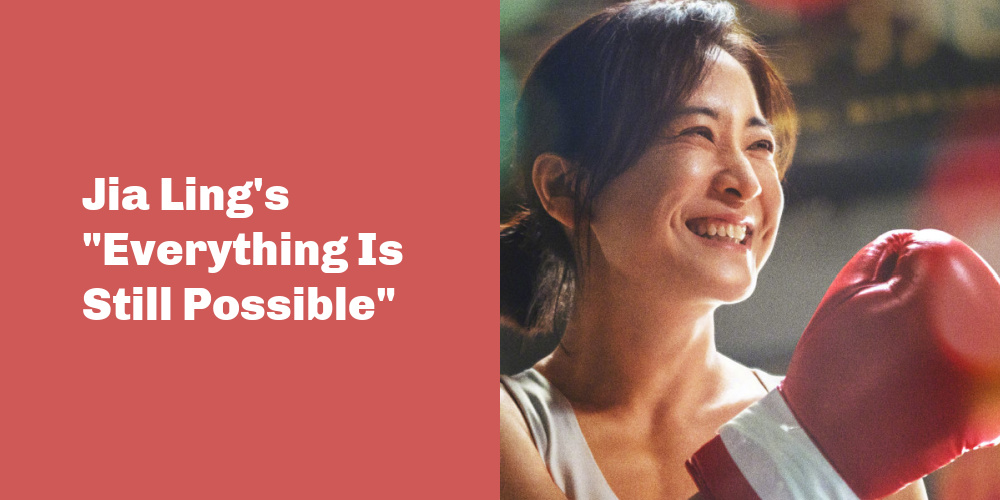
So far, the Year of the Dragon is an especially fruitful one for Chinese actress and director Jia Ling (贾玲). Although the famous comedian had previous major successes with her directorial debut Hi, Mom in 2021, her current popularity is unprecedented: everyone is talking about Jia Ling.
We recently covered Jia Ling’s return to the spotlight after a year-long break from the public eye. Not only did she announce her new film YOLO (热辣滚烫), the actress also lost a staggering 110 lbs (50 kg) for her role.
Her movie turned out to be the biggest box office hit of the season. Of all the different box office premieres during the eight-day Spring Festival holiday, Jia Ling’s YOLO took the lead with 2.7 billion yuan.
YOLO (热辣滚烫) is an inspirational story about an overweight woman who finds new purpose and becomes fit through boxing. But it’s about more than the movie alone: Jia Ling herself has become a great source of inspiration to others. Besides acting and directing, she is now also singing and composing. This week, the music video for Jia’s song “Everything Is Still Possible” or “Everything Comes in Time” (一切都来得及) was released. In the video, the ‘new’ Jia Ling can be seen singing a duet with her former self, singing about the importance of loving yourself.

Jia Ling singing a duet with her old self.
After her box office success, hit song, and new appearance, it seems that Jia Ling is at the peak of her popularity. She’s become a role model for her talent, dedication, and style – she’s the hottest woman on Weibo.
What’s Memorable

In light of the Spring Festival, we’ve picked this article from our archive from one year ago which explores a new genre that was introduced during the CMG Gala in 2023, namely the ‘micro film.’ While this year’s show also featured another short film by director Zhang Dapeng at the very beginning, the 2023 short film titled “Me and My Spring Festival Night” (“我和我的春晚”) truly captivated audiences. This 7-minute mini-film was a remarkable piece of storytelling with a surprising twist at the end. Many viewers hailed it as the highlight of the Gala, with some even going so far as to call it the best segment of the Gala they’d seen in a decade. Read more about the short film here 👇
Weibo Word of the Week

“Chunshan Studies” | Our Weibo Word of the Week is “Spring Mountain Studies” or “Chunshan Studies” (Chūn Shān Xué 春山学), a phrase which has taken the Chinese internet by storm recently.
“Chunshan Studies” emerged as a result of the controversy surrounding the song “Going Up Spring Mountain” performed at the annual CMG Spring Festival by Bai Jingting (白敬亭), Wei Chen (魏晨), and Wei Daxun (魏大勋). Bai, the only singer of the three dressed in black and standing at the highest pedestal during the live performance, became the subject of online scrutiny when netizens accused him of purposely choosing his position and attire to steal the spotlight.
The incident became a hot topic, almost evolving into a full-fledged study with various related theories, hence netizens humorously started referring to it as “Spring Mountain Studies” or “Chunshan Studies”. Netizens meticulously scrutinized everything from wardrobe details to body language, searching for hidden meanings and subtle clues that may reveal the intentions of those involved and the truth of what happened on stage. On social media platforms Douyin and Bilibili, numerous “Chunshan Studies” videos emerged, providing frame-to-frame analyses of how Bai Jingting may have tried to seize the main position and supposed abnormal stage movements.
Chunshan Studies has become a distinct field of study focusing on the “Going Up Spring Mountain” controversy, but it also intersects with critical analysis, popular media discourse, and social studies. Some commenters believe that the discussions about Bai Jingting’s position on stage are actually about equity and ethical behavior.
Guess we all learned something new this Spring Festival!
This is an on-site version of the Weibo Watch newsletter by What’s on Weibo. Missed last week’s newsletter? Find it here. If you are already subscribed to What’s on Weibo but are not yet receiving this newsletter in your inbox, please contact us directly to let us know.
Stories that are authored by the What's on Weibo Team are the stories that multiple authors contributed to. Please check the names at the end of the articles to see who the authors are.

You may like
China Travel
Olympic Swimming Fu Yuanhui Gets Help via Weibo Following Taxi Scam
Olympic champion Fu Yuanhui, known for her ‘mystical powers,’ turned to social media when she faced a tourist scam.
Published
11 months agoon
February 17, 2024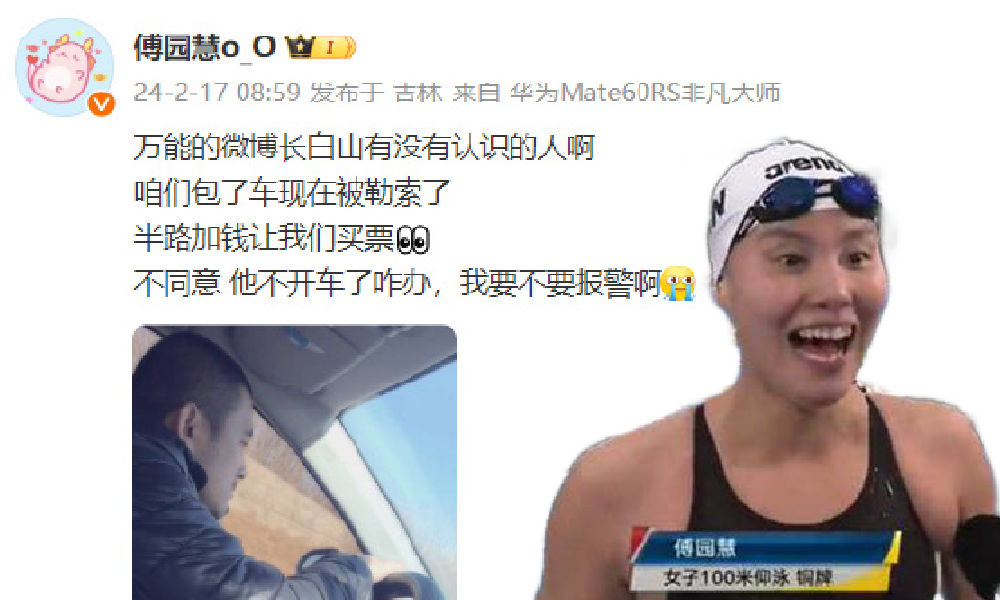
“We hired a car and now we’re being extorted. Halfway through, they wanted us to pay more to buy tickets; we disagreed, so now the driver won’t continue driving. What should I do? Should I call the police?”
This was the plea for help that Olympic swimmer Fu Yuanhui (傅园慧) posted on Weibo on Saturday morning, February 17. The popular athlete informed her followers that she was around the Changbai Mountain Scenic Area, a popular winter tourist destination in China’s Jilin Province, when her driver suddenly demanded more money from her.
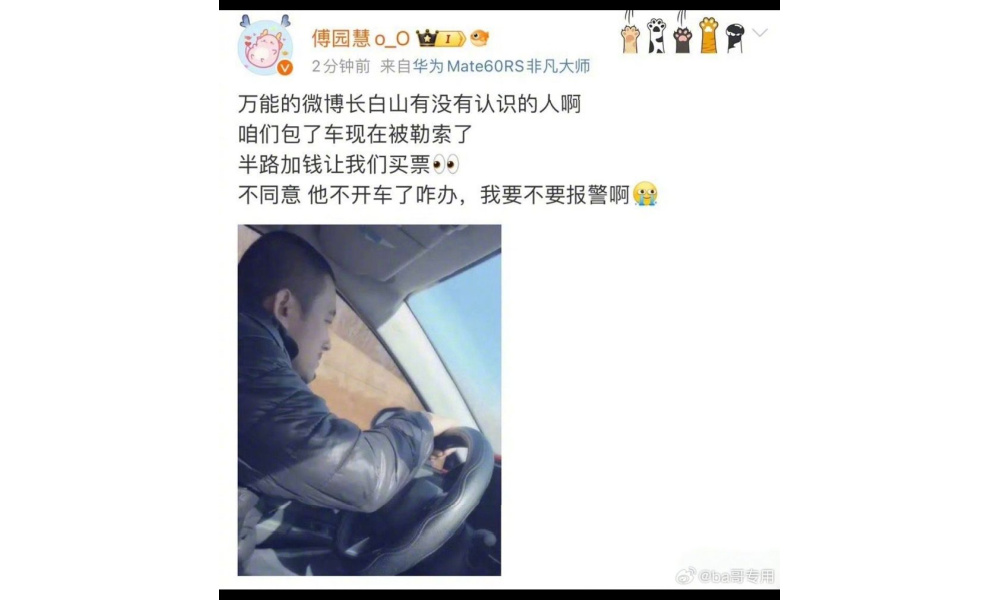
Shortly after posting about her predicament, Fu Yuanhui sent out an update: “Thank you all for following, the Jilin Ministry of Culture and Tourism swiftly stepped in, the problem is already solved now. Thanks everyone.”

Following these posts, Fu Yuanhui and the Changbai incident quickly went trending on Weibo, where many people commented that her situation was only resolved so quickly because she is famous.
Fu Yuanhui became a Chinese internet sensation eight years ago, after her performance and interviews during the Summer Olympics in Rio de Janeiro. When talking to reporters, Fu was excited, positive, and refreshingly honest. She introduced the popular phrase “mystical powers” (洪荒之力, literally: power strong enough to change the universe) when explaining that she was swimming extra fast because she was “using all ‘mystical powers'” (read more). She also went viral for expressing genuine delight upon discovering she had won a bronze medal, and for disclosing that she did not swim very well another time because she was on her period.

Fu Yuanhui charmed Chinese audiences after her disarming interviews during the Summer Olympics in 2016.
Following her Olympic success, Fu gained many fans on social media. On Weibo, she has over 7 million followers.
It is clear that her fame and relatively large following played a role in how fast her issue was resolved. Not only did the local authorities step in, the driver who extorted her reportedly was also quickly punished for his actions and received a 30,000 yuan fine (US$4215). A related hashtag, published by state media outlet CCTV, went viral and received over 130 million views on Weibo (#对傅园慧加价黑车司机被罚3万元#).
While most are glad to see the driver get punished so soon, many commenters argue that it’s unfair for someone like Fu Yuanhui to receive swift assistance while many ordinary travelers across China facing scams during this holiday season struggle to get the help they need.
On February 16, a Chinese family of five was kicked off a tour bus during their trip in Lijiang, Yunnan, because they had refused to purchase a bracelet worth 50,000 yuan ($7,025) as instructed by their tour guide during a visit to a jade shop. This incident also went viral on Weibo (#一家人旅游未买5万手镯被赶下车#, 130 million views), sparking outrage over local travel scams and the perceived inaction of tourism authorities.
A significant factor in these discussions is how Chinese local tourism authorities have been ramping up their marketing efforts following the pandemic and China’s zero-Covid policy. Seeking to attract more domestic tourists, they’ve been exploring new strategies to promote their hometowns, particularly among younger generations. Since early 2023, various tourism bureau chiefs from across China have gone viral on platforms like Weibo, Douyin, and beyond for their innovative social media campaigns.
The marketing success of certain destinations, such as ‘BBQ town’ Zibo, has also inspired other cities or regions throughout China to go all out in presenting their best side. Some of them, such as Harbin, have succeeded in becoming yet another holiday hit.
While these kind of campaigns are generally applauded, many believe that actions speak louder than words. They argue that besides focusing on social media campaigns, local tourism authorities should do more to protect common travelers against scams, rip-offs, and fraud.
“What will you do next time this happens?” many ask, and: “what should normal people without a big social media following do when this happens to them?”
“Fu Yuanhui is a public figure, which is why this case was resolved. For regular people, nothing would happen – we don’t get heard,” another person wrote.
While many criticize Jilin authorities for aiding Fu Yuanhui without effectively addressing tourist scams, most people don’t blame Fu Yuanhui at all for seeking the help she needed. “After all,” one commenter wrote, “She does have mystical powers.”
By Manya Koetse
With contributions by Ruixin Zhang
Get the story behind the hashtag. Subscribe to What’s on Weibo here to receive our newsletter and get access to our latest articles:
Spotted a mistake or want to add something? Please let us know in comments below or email us. First-time commenters, please be patient – we will have to manually approve your comment before it appears.
©2024 Whatsonweibo. All rights reserved. Do not reproduce our content without permission – you can contact us at info@whatsonweibo.com.
China Arts & Entertainment
Looking Back on the 2024 CMG Spring Festival Gala: Highs, Lows, and Noteworthy Moments
Reflecting on the highs and lows of this year’s China Media Group Spring Festival Gala, the world’s most-watched television program.
Published
11 months agoon
February 14, 2024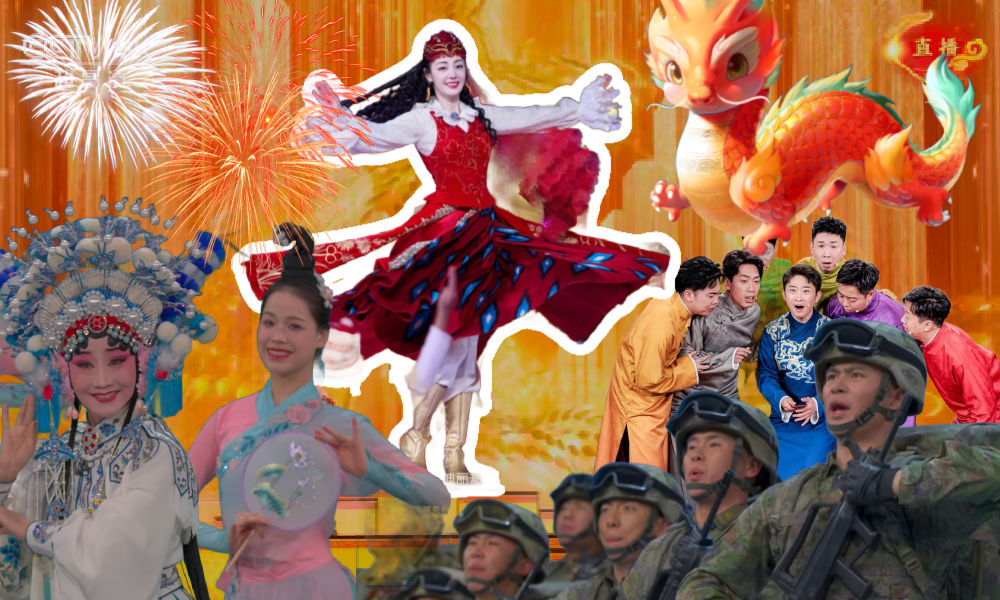
PREMIUM CONTENT
The biggest media spectacle of the Chinese New Year is the annual CMG Spring Festival Gala. The entire week, this four-hour extravaganza featuring forty-six performances has dominated social media conversations.
The 42nd edition of The CMG Spring Festival Gala was broadcasted on February 9th, celebrating the start of the Dragon Year. This year, the show reportedly attracted 679 million viewers.
The annual Spring Festival Gala by the state-run China Media Group (CMG) has become an integral part of the Lunar New Year celebrations for Chinese people since its debut in 1983. As the world’s most-watched live-broadcasted entertainment program, the Gala is now aired across dozens of channels, both in China and abroad, both on television and online.
China’s Spring Festival Gala (中国中央电视台春节联欢晚会) is commonly abbreviated to Chūnwǎn (春晚) in Chinese. Over the past week, the Chūnwǎn became a much-discussed topic on Chinese social media and dominated all trending lists during the Chinese New Year’s Eve.
The Gala, which lasts a total of four hours, shows the very best of China’s mainstream entertainment and Party propaganda and is a mix of culture, commerce, and politics. Through music, dance, art, and comedy, the event serves as a significant platform for the Party to disseminate official ideology. It is also a chance to present the nation’s top performers while showcasing digital innovations.
A “No-Covid”, Traditional Gala
The phrase “There will never be a worse, just worse than last year [中央春晚,没有最烂,只有更烂]” has become a well-known saying among viewers about the Chūnwǎn, as complaining about the show is very much part of the tradition. However, was this year really worse than last year? Not at all.
This 2024 edition was directed by Yu Lei (于蕾), who also directed the 2023 Gala. The 45-year-old female director previously also served as the general scriptwriter and overall designer for the Gala.
Not only was the director the same as last year, but the five main hosts were also exactly the same. They include Ren Luyu (任鲁豫, 1978), the TV host from Henan who has now become one of the most familiar faces on the show; Sa Beining, also known as Benny Sa (撒贝宁, 1976), who is famous for his CCTV work and for hosting the Gala regularly over the past twelve years; Nëghmet Raxman (尼格买提, 1983), a Chinese television host of Uyghur heritage who has hosted the Gala seven times since 2015; Long Yang (龙洋, 1989), a CCTV host from Hunan who presented the Gala for the third time this year; and Ma Fanshu 马凡舒 (1993), who was the youngest and newest host during the 2022 Gala and has been presenting it since.

The choice of director and presenters suggests that continuity and consistency were important for this year’s Chūnwǎn. Although the Gala’s format is always more or less the same, including songs, dances, cross-talk, sketches, traditional opera, martial arts, magic, etc., this year’s Gala stood out for sticking to tradition.
Over the past few years during the pandemic, several elements of the show were altered to adapt to the new situation. From 2021 to 2023, the show was only broadcast from the Beijing Studio and focused less on big spectacular scenes. Since 2020, the battle against Covid has also been a theme in the show. In 2020, the Gala included a segment that was broadcast live from a Wuhan hospital to show how medical staff were spending their Lunar New Year taking care of Covid patients. That was the first time since 1983 for the Gala to include a segment that was not meticulously rehearsed.
From 2021 to 2023, the nation’s battle against Covid was also a theme in songs and other segments, reflecting on the daily lives of ordinary people. In 2021, for example, Jackie Chan sang “Tomorrow Will Be Better” (明天会更好), which addressed the epidemic situation and honored all who joined in the fight against the virus.
However, the theme of Covid played no role at all anymore in this year’s Chūnwǎn, which focused entirely on celebrating the Year of the Dragon, the home, and the nation (龙行龘龘,欣欣家国). Similar to the pre-2020 Gala, this 42nd edition was broadcast not only from the Beijing venue but also included performances in four other locations: Shenyang, Changsha, Xi’an, and Kashgar. Continuity was also seen in the 46 acts of the night, as many familiar faces, such as Sun Nan (孙楠) and Han Hong (韩红), performed during the night.
Highlights of the 2024 Gala
● The xiangsheng (相声) act “Director’s Worries” (“导演的心事”) was the most-watched act of the entire show according to the viewership ratings – this also relates to the time of the broadcasting. Xiangsheng is a traditional Chinese comedic performance that involves a dialogue between two performers, using rich language and many puns. This act was performed by comedians Jin Fei (金霏) and Chen Xi (陈曦). They were also joined by others, turning it into a “group xiangsheng” (群口相声) that humorously portrayed the mental strains faced by Chinese young people and served as a source for parodies and memes on social media.

● The Song “Dragon” (龙), performed by famous pop singers Zhang Jie aka Jason Zhang (张杰) and Sun Nan (孙楠) was particularly popular this Gala. The song encompassed the main theme of the Dragon Year, as they sang about how a dragon lies in every Chinese person, representing the spirit and strength of the Chinese nation over the past five thousand years. This song integrated popular entertainment with the essence of the Chinese New Year, cultural heritage, and national pride, making it the perfect anthem for the Spring Festival Gala. One Weibo post by Zhang Jie about his performance received nearly 167,000 comments and over 176,000 shares.
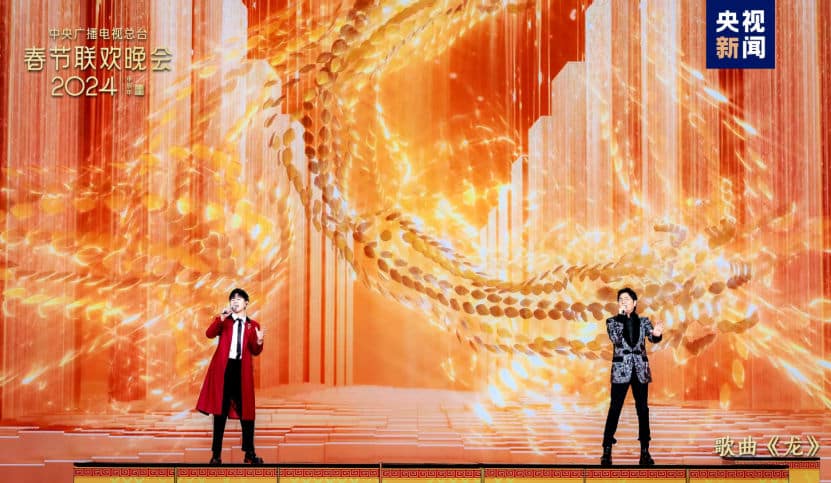
● The performance of “Koi Carp” (锦鲤) featuring lead dancer Hua Xiaoyi (华宵一) and the Beijing Dance Academy (北京舞蹈学院) was another standout moment of the Gala. The ‘painting’ dance “Only This Green” (只此青绿) stole the spotlight in 2022, while the ’embroidery’ dance “Splendid” (锦绣) was one of the highlights of the show in 2023. Continuing the tradition of presenting top-notch, artistic dance that merges tradition with technology, the Koi Carp dance had a similar charm, with dancers suspended on spring ropes performing an exquisite aerial dance that made them look like graceful fish underwater.

● The creative act “Start Something New” (别开生面) directed by the renowned filmmaker Zhang Yimou (张艺谋) was a highlight in the show for its originality. The act, which combined cooking, dancing, and singing, presented various Lunar New Year customs and food cultures from different regions in China. Besides directing films, Zhang Yimou also has a lot of experience as a creative director of major shows, including the 2008 Summer Olympics opening ceremony, the 2022 Winter Olympics opening ceremony, and the outdoor night show Impression Sanjie Liu.
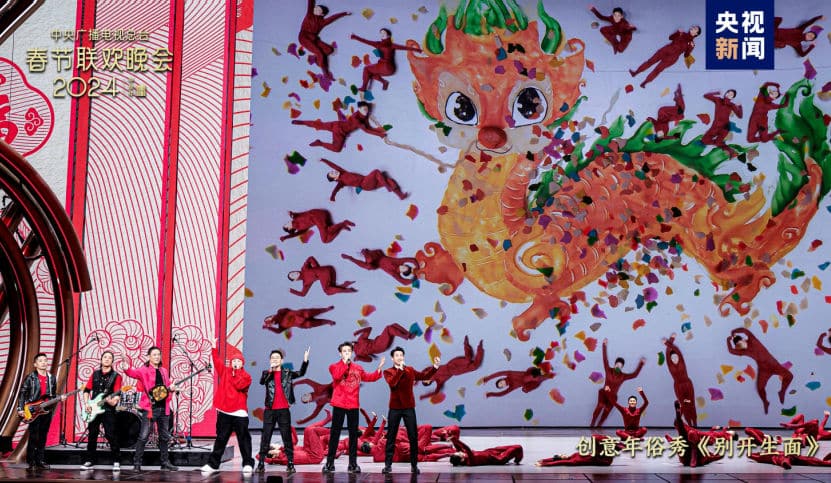
● The Xi’an special segment “Poem for the Landscape of Chang’an” (山河诗长安) performed by Zhang Ruoyun (张若昀), Tang Shiyi (唐诗逸), Zhu Tiexiong (朱铁雄) PACT (派克特), Yang Li (杨力) and conductor Sun Yifan (孙一凡), was among the most spectacular ones of the night. This was an ode to Xi’an and Chinese poet of the Tang Dynasty, Li Bai. Filled with lion and dragon performances, opera, rap, dance, and specially arranged music by the Xi’an Symphony Orchestra, the segment included a virtual version of Li Bai joining the spectacle. On social media, netizens praised the performance and posted many gifs of the Chinese actor Zhang Ruoyun together with the virtual version of the classical poet Li Bai.
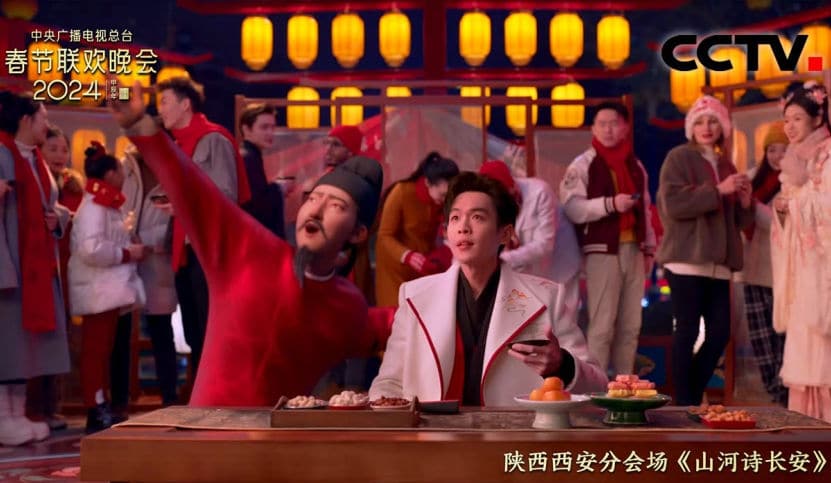
The ‘Lows’ of the 2024 Gala
● The various xiaopin (小品, skits) were not very well-received. Over the past few years, the Gala’s dance and song performances have actually become among the most beloved acts – far more popular than the xiaopin, which did not get much positive feedback this year at all. Some people said they just “didn’t get” the humor or that the sketches were just not entertaining enough.
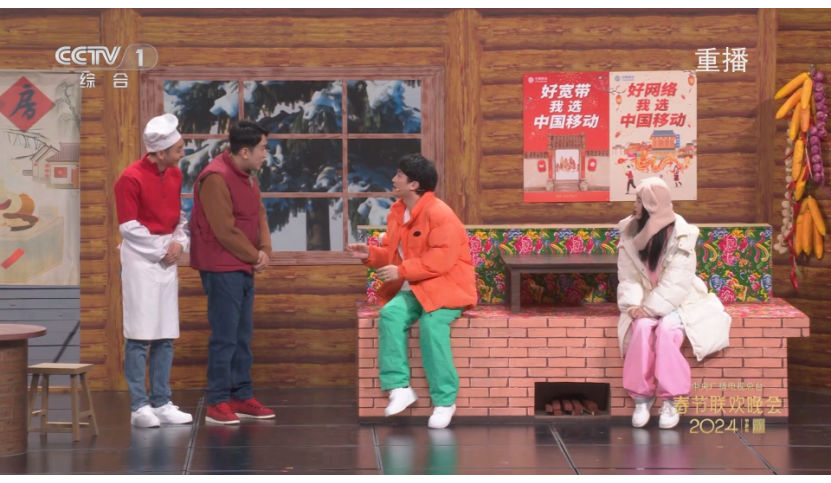
● The song “Unforgettable Night” (难忘今宵) was the least viewed part of the show according to viewership ratings, and it marked a departure from tradition in a significant way. Since the 1980s, the final song of the Spring Festival Gala has always been “Unforgettable Night,” sung by Li Guyi (李谷一). Li Guyi rose to fame with the song “Homeland Love” (乡恋) during China’s Reform and Opening Up era, and her songs evoke nostalgia for many viewers. She made her first appearance at the Gala in 1983 and became the most frequent performer at the event. Due to her recovery from Covid in the hospital, she was unable to perform at last year’s Chūnwǎn, and her absence from this year’s show was not only a significant disappointment for many but was also seen as the end of an era. Additionally, many people commented that they did not appreciate the new interpretation of the traditional song.
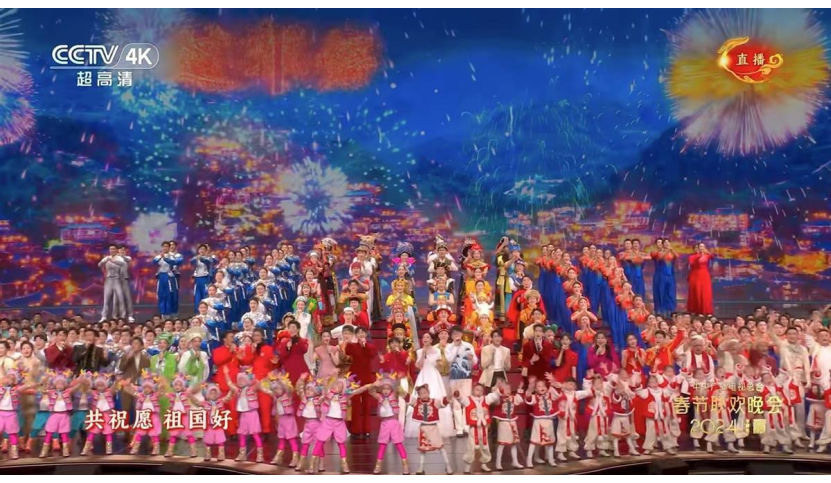
● The PLA song “Decisive Victory” (决胜) drew attention from Taiwanese media outlets, highlighting it as a controversial moment of the Gala. The performance of this military song, delivered by artists from the PLA Cultural and Artistic Center, featured soldiers clad in combat gear marching and dancing on stage, while the backdrop displayed images of rockets, tanks, and other war-like scenes. Taiwanese media framed the song within the context of mainland China’s military threats against Taiwan. Some Weibo commentators also interpreted the performance in this light, particularly noting the sequence where singers from Taiwan and mainland China first sang the song “Etiquette” (礼序) together just before the People’s Liberation Army performed the military song. This was seen as a statement of “diplomacy comes before violence” (“先礼后兵”).
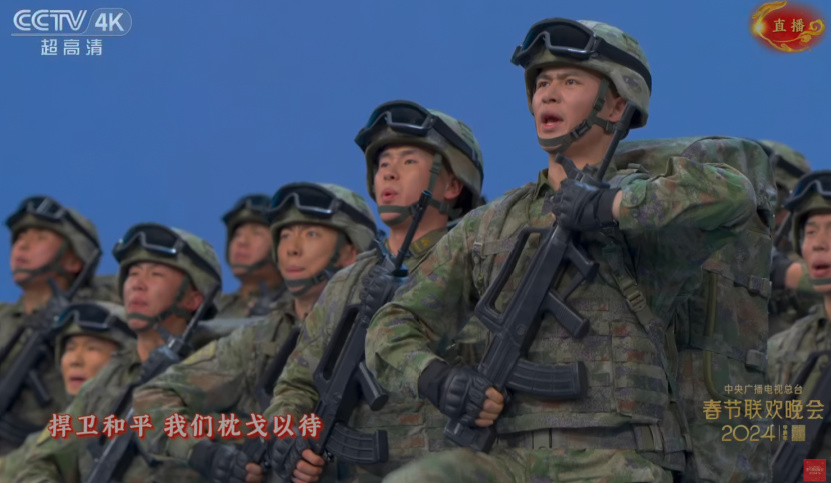
The Noteworthy
● The magic show “Guarding the New Year Together” (守岁共此时) performed by Liu Qian (刘谦) created quite a buzz. During a card trick involving the audience and Gala host Nëghmet Raxman, it seemed like Raxman’s cards didn’t match as intended. Although everyone was supposed to have matching cards, Raxman’s expression revealed that his two cards did not match. This led to much banter online, and Nëghmet Raxman – and his nervous expression – became a trending topic.
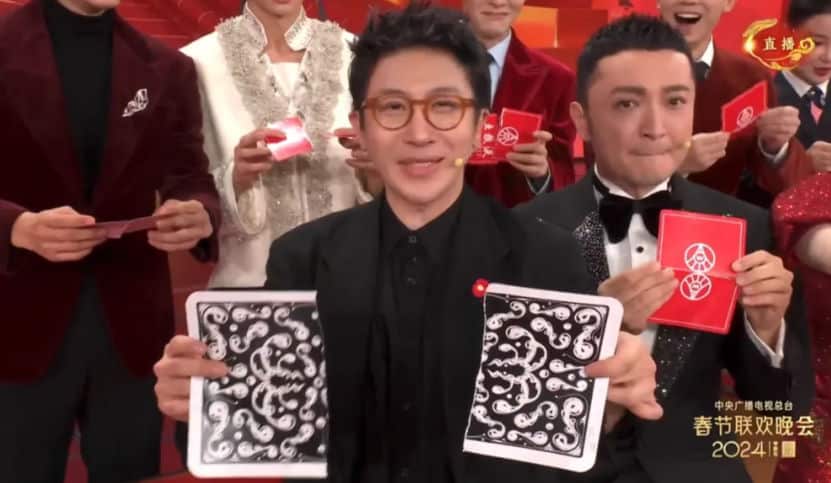
● The song “Climbing Spring Mountain” (上春山) performed by Wei Chen (魏晨), Wei Daxun (魏大勋), and Bai Jingting (白敬亭) became one of the most discussed acts in the week following the Gala after a rehearsal video was posted online and netizens noticed inconsistencies in the singers’ attire and positions on stage. It was rumored that Bai Jingting may have intentionally vied for a more prominent position to attract more attention on stage, resulting in choreographic asymmetry and some apparent confusion during the song. One important reason why the main rehearsal video triggered controversy is because a tape of the official rehearsal always runs concurrently with the live broadcast, allowing producers to seamlessly switch to the taped version in the event of a problem or disruption without TV audiences noticing. But because Bai changed his outfit, wearing black while the others wore white, and because he did not give up his main spot during the performance, it might have been impossible for producers to switch to a rehearsed version of the song (even though the lip-syncing during the performance was completely out of sync).
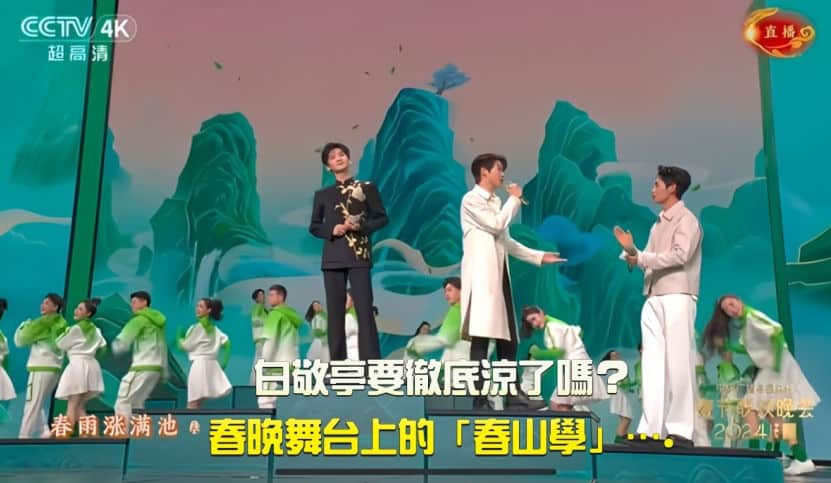
● The song “A Friend Like You” (像你这样的朋友) attracted a lot of attention on Weibo and beyond this week as it was performed by the so-called “0713 Super Boys,” including Wang Zhengliang (王铮亮), Chen Chusheng (陈楚生), Allen Su (苏醒), Zhang Yuan (张远), Lu Hu (陆虎), and Wang Yuexin (王栎鑫). In 2022, these once nearly ‘forgotten’ singers made a remarkable comeback through the reality TV hits Welcome to the Mushroom House (欢迎来到蘑菇屋) and Go for Happiness (快乐再出发). They initially gained fame in 2007 after participating in the singing contest Super Boy but gradually faded into obscurity in the years following their initial success. Their gala performance marks their ultimate comeback.

● “Belle” (美人) from the French musical Notre Dame de Paris was performed at the Gala in French by various French and Chinese performers, including Angelo Del Vecchio and Liao Changyong. “Who would have ever expected for Notre Dame de Paris to be performed at the Chūnwǎn in French?” one commenter wrote. The Gala provided some subtitles during the song to convey the general idea of the song. Although the Gala usually incorporates an international element, this was the first time for a song to be fully sung in French. The song was presented in the context of China and France celebrating their 60th anniversary of diplomatic relations this year.

● Dilraba Dilmurat (丽热巴) in “Dances of Xinjiang” (舞乐新疆) was praised by commenters as the most beautiful performer of the night. The Chinese actress of Uyghur ethnicity showcased her dancing skills during the Kashgar segment of the evening. Not only was her performance notable for its beauty and grace, but it also garnered attention online due to a video recorded by an audience member showing Dilmurat slipping and falling on her bum during the show, after which she promptly got up and continued. After all, the show must go on!
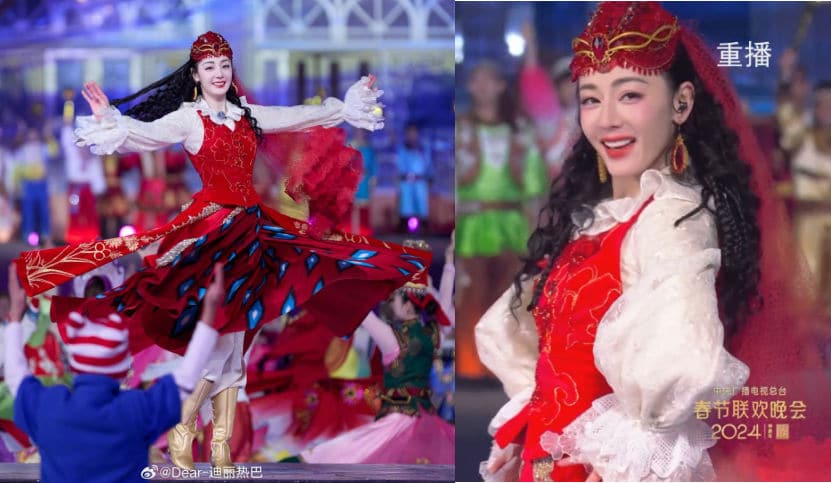
Watch the full performance on Youtube here
Want to know more about the previous editions of the Spring Festival Gala? Also check out our articles below:
– 2023: Behind the Short Feature Film of the Spring Festival Gala
– 2023: Top 5: The Highlights of China’s 2023 CGM Spring Festival Gala
– 2023: Watching ‘Chunwan’: Liveblog CMG Spring Festival Gala
– 2022: Chunwan 2022: The CMG Spring Festival Gala Liveblog by What’s on Weibo
– 2021: Spring Festival Gala Draws Criticism for Gendered Jokes
– 2021: The Chunwan Liveblog: Watching the 2021 CMG Spring Festival Gala
– 2020: CCTV New Year’s Gala 2020
– 2019: The CCTV Spring Festival Gala 2019 Live Blog
– 2018: About the CCTV Spring Festival Gala’s ‘Racist’ Africa Comedy Sketch
– 2018: CCTV Spring Festival Gala 2018 (Live Blog)
– 2017: The Best and the Worst of CCTV New Year’s Gala 2017
– 2017: CCTV New Year’s Gala 2017 Live Blog
– 2016: CCTV’s New Year’s Gala 2016 Liveblog
By Manya Koetse
With contributions by Miranda Barnes
Get the story behind the hashtag. Subscribe to What’s on Weibo here to receive our newsletter and get access to our latest articles:
Spotted a mistake or want to add something? Please let us know in comments below or email us. First-time commenters, please be patient – we will have to manually approve your comment before it appears.
©2024 Whatsonweibo. All rights reserved. Do not reproduce our content without permission – you can contact us at info@whatsonweibo.com.
Popular Reads
-

 China Insight9 months ago
China Insight9 months agoThe Tragic Story of “Fat Cat”: How a Chinese Gamer’s Suicide Went Viral
-

 China Music10 months ago
China Music10 months agoThe Chinese Viral TikTok Song Explained (No, It’s Not About Samsung)
-

 China Insight11 months ago
China Insight11 months agoThe ‘Two Sessions’ Suggestions: Six Proposals Raising Online Discussions
-

 China Digital8 months ago
China Digital8 months agoChina’s 2024 Gaokao Triggers Online Discussions on AI






